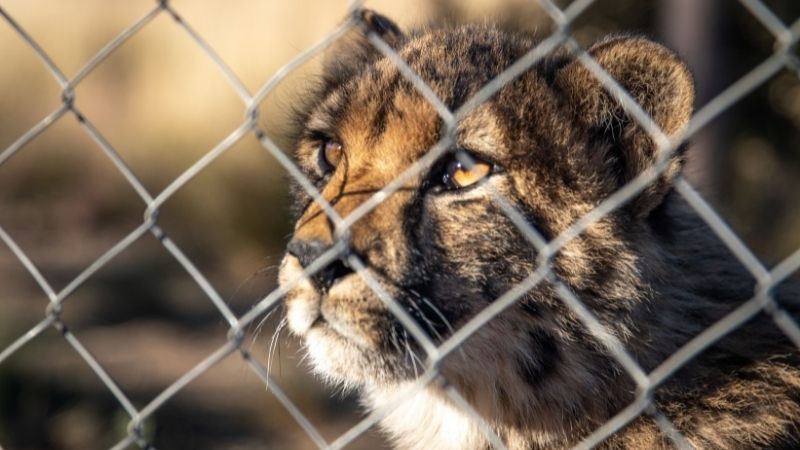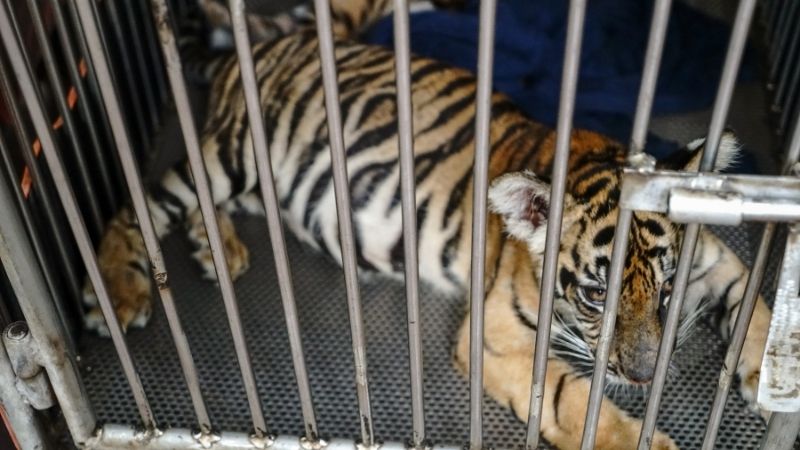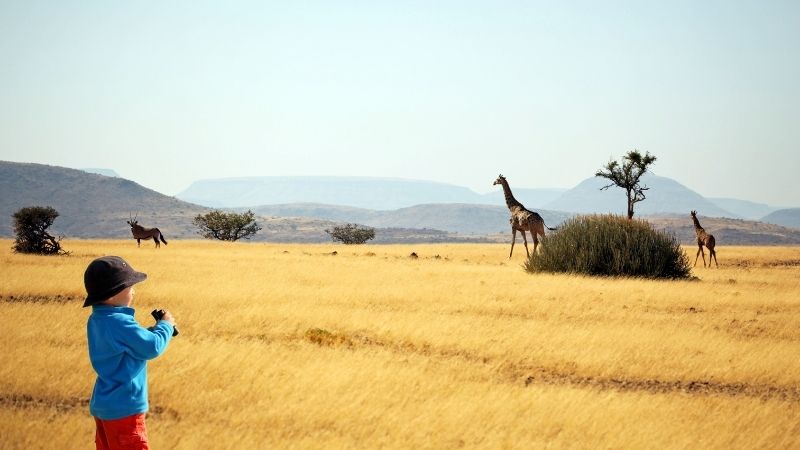
Since governments around the world have lifted COVID restrictions, many people are booking holidays abroad this summer for the first time since the start of the pandemic. Undoubtedly, many of these trips will include experiences with both wild and captive animals – whether that be a visit to an aquarium, zoo or a supposed ‘sanctuary’. Up-close and personal animal encounters, such as elephant, camel, and donkey rides, and photo ops with big cats are also popular. According to the World Animal Protection 110 million people visit wildlife tourist attractions around the globe each year. But what’s the real impact of these ‘once-in-a-lifetime’ experiences on the animals involved?

The hidden side of animal tourism
Riding elephants
No matter how good the photo might look on your ‘gram, you should never ride an elephant, under any circumstances. According to PETA, the only way to train an elephant to ride it is by torturing it through violence, malnourishment, dehydration, and routine chaining. Often, these elephants are forcibly taken from their mothers at birth, kept in small cages, and prevented from social interaction with one another, which can lead to psychological trauma. This trauma can lead them to lash out at their handlers or tourists, injuring people and themselves in the process. Sound like something you’d like to contribute to?
Cuddling big cats
I hold my hand up here, and admit that I’ve been guilty of this in the past. When I was sixteen, my family and I visited what I now recognize as a ‘pseudo-sanctuary’ for cheetahs in South Africa. Little did I know at the time that stroking big cat cubs is ‘cruel, distressing and unnatural’ according to the animal welfare organisation, FOUR PAWS. Female cheetahs are exploited as ‘breeding machines’ to make money for the owners of the facility, by producing a ‘constant flow’ of cubs to be used as photo props. Moreover, the cheetahs are often kept in horrible conditions with a lack of enrichment, medical care, and basic necessities such as enough water and food.

Misinformation
You may be thinking to yourself: “well, I’d never support an attraction where the animals were mistreated”, or “but surely there’s nothing wrong with going to a sanctuary or conservation park where the animals have been rescued”. But can animal tourism ever really be ethical?
A big part of why animal tourism is so popular is due to the misinformation and lies fed to the consumers involved. According to the Global Federation of Animal Sanctuaries, the public is often misguided to believe that any captive animal facility – especially those with exotic wild animals – is a sanctuary. Such ‘pseudo-sanctuaries’ exploit this misconception to buy and sell animals and get financial support from the unwitting public. If you’ve seen Tiger King on Netflix, you’ll know all about how an organisation such as the G.W. Zoo in Oklahoma can claim to be a ‘sanctuary’ or ‘shelter’ for endangered animals, while simultaneously mistreating and perhaps even killing its own animals.
But how can you tell the difference between a legitimate sanctuary, then, and a fraudulent one? The answer – do your homework. Research the supposed sanctuary online, read reviews from its visitors and check its official accreditations. And, after all, this, if you’re still in doubt – avoid.

Ethical Alternatives
Love animals, but don’t want to contribute to the exploitation of the animal tourism industry? Luckily, ethical alternatives are out there!
Watch from a safe distance!
Give wild animals the space and respect they deserve by watching them afar in their natural habitats. There are plenty of nature reserves in the UK and abroad where you can watch whales, dolphins, birds, seals, and other animals with binoculars if you’re lucky enough to be at the right place at the right time.
Volunteer
There’s a whole host of animal conservation volunteering programs that allow you to travel abroad while also doing good for local wildlife – from sea turtle conservation in Bali to caring for stray cats and dogs in Costa Rica, to helping at centers for rescued wolves in Portugal. However, as mentioned, it’s crucial that you do your research to ensure that any volunteering program you decide to participate in is for a legitimate, ethical and effective organisation.
Now that you’re ready for a cruelty-free holiday abroad, why not shop our range of summer essentials on VBazaar? From fun slogan t-shirts, cruelty-free and vegan tanning oil, and eco-friendly bronzing powder to give you that sun-kissed glow, we have everything you need to be cool – and not cruel – this summer.





